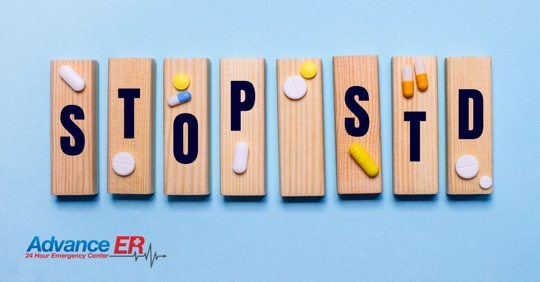How Important Is STD Prevention?
Approximately 25% of sexually active adolescents have sexually transmitted diseases, ranging from chlamydia to human papillomavirus. There are many varying factors and causes, as well as alcohol and recreational drug use which may lead to infections and getting infected and will protect your overall health.
Ways to Prevent STDs
The most effective way to prevent contracting a sexually transmitted disease is to steer clear of unprotected sex outside of a monogamous relationship and with someone you know is free of STDs. If you do engage in sex with someone, there are ways to prevent STDs and other unintended consequences:
- Use a condom: The most important step is making sure you use a latex condom when engaging in penetrative or oral sex.
- Be honest: Have complete honesty and transparency with your doctor about you and your partner’s sexual activity and consider additional forms of contraception to prevent unintended pregnancy.
- Limit alcohol and drug use: Limit your intake of alcohol and other substances that can cloud your judgment or your ability to consent to sex. In general, if you are too drunk to drive or walk home, you are probably too drunk to effectively consent to sex.
Can I Treat STD’s?
Patients who have a bacterial STD such as gonorrhea or chlamydia will receive a prescription for antibiotics. It is critical to follow the instructions, so the antibiotics kill the infection. Patients should undergo a second round of testing three months after finishing the antibiotics to ensure the infection did not reappear. If it reoccurs, patients must undergo a second round of treatment.
Genital herpes is a viral STD and cannot be cured. However, antiviral drugs limit the number of outbreaks and also reduce the symptoms. These drugs also make infected patients less likely to pass the disease to sexual partners.
How Do I Know If I Should Visit an STD Clinic Near Me?
If you do have an unprotected sexual encounter during spring break or develop unexplained genitourinary symptoms, such as burning with urination or an unusual vaginal or penile discharge, you should see a healthcare provider as soon as possible for STD testing. Depending on the test, most STDs can be detected within two weeks to three months following infection.
The following are a few of the most common STDs, all of which we provide testing for:
- Human papilloma virus (HPV)
- Genital herpes
- Gonorrhea
- Chlamydia
- Syphilis
- Human immunodeficiency virus (HIV/AIDS)
- Trichomoniasis
Where Can I Find an STD Clinic?
For more information on ways to prevent STDs or for confidential STD testing services, contact our emergency clinic at Advance ER today. We have multiple locations throughout the Dallas area and are open seven days a week, 24 hours a day.
For more information about STD testing, or to schedule one at Advance ER, call us at (214) 494-8222 today.

